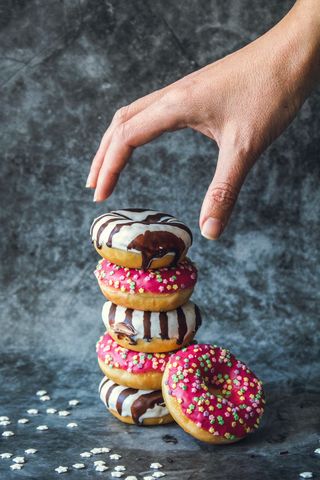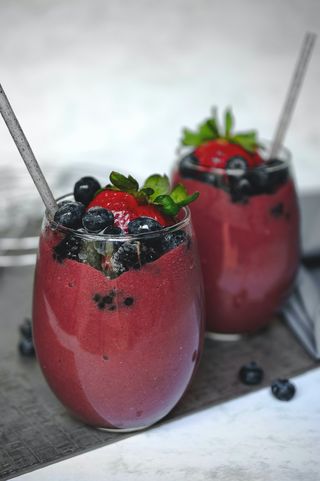Diet
National Junk Food Day
What does your brain really need when you crave sugar?
Posted July 21, 2020

Today is National Junk Food Day. It’s not exactly a day we celebrate at the Leslie Korn Institute for Integrative Medicine, but it’s a topic of great importance to me and my clients who are working to reduce their cravings and often hear me repeat, “Mood follows food.” Junk food and the Standard American Diet (SAD) diet is a key to the mental health puzzle.
It is hard to resist junk food especially because it is made to be addictive, hitting our taste buds with potently enhanced chemicals that are designed to stimulate our dopamine. Cravings hit, often as our mood or energy drops and it’s tempting to turn to that bag of chips, sugar-laden cookies, or the candy left over from Halloween. But it’s important that we remind ourselves that junk food and poor quality nutrition, in general, contribute to and exacerbate mental illness. Where there is mental illness, there is a poor quality diet. Where there is mental illness, there is a long history of digestive problems.
The standard American diet (SAD) or “junk food” makes us sad; it does not provide us with the nutrients our body and brain need for functioning well. In fact, one of the most important influences on mental health resulting from a nutritionally-deficient diet filled with junk food is the inflammatory response. Inflammation is now understood to underlie most mental illness, including depression.
Improving our diet and mental health starts with understanding and managing our cravings. Oftentimes, our cravings lead us to junk food. However, the foods we crave give us insight into the chemical reactions that the brain/mind want and need. Ignoring or judging our cravings is not the answer. Instead, listen to and understand the story our cravings tell.
I developed a concept called the “principle of substitutions” or finding an alternative food to what we crave while still achieving the same effect. In other words, substitute healthy, protein and fat foods (and yes, carbs and chocolate work also—just no sugar) that satisfy and feed our brains. Let go of the less healthy option.
So, what does your brain really need when you crave sugar?
The answer is protein and fat. If you find yourself craving sugar and refined carbs, increase the protein and fat in your diet and see how you feel.

Take things step by step. Gradually begin switching junk food with healthier alternatives. In honor of National Junk Food Day, I’m sharing with you some substitutions to start implementing into your diet. Your mind and body will thank you!
- Bread or sweets: Replace with sweet potatoes
- Sugary treats: Fruit smoothies sweetened with stevia
- Chocolate with sugar: Unsweetened cocoa powder with stevia/homemade stevia-sweetened chocolate candy
- Cane sugar: Honey or maple syrup
- Honey: Stevia
- Coffee: Black tea, decaffeinated coffee, herbal coffee substitutes (roasted dandelion root, ramon nut [bread nut]), green tea, chai.
Read more about the food-mood connection in my clinical textbook Nutrition Essentials for Mental Health: A Complete Guide to the Food-Mood Connection. I’ll walk you through substitutions and various other steps for improving your diet and mental health. To learn more contact me at drlesliekorn.com or https://institute.drlesliekorn.com/.


